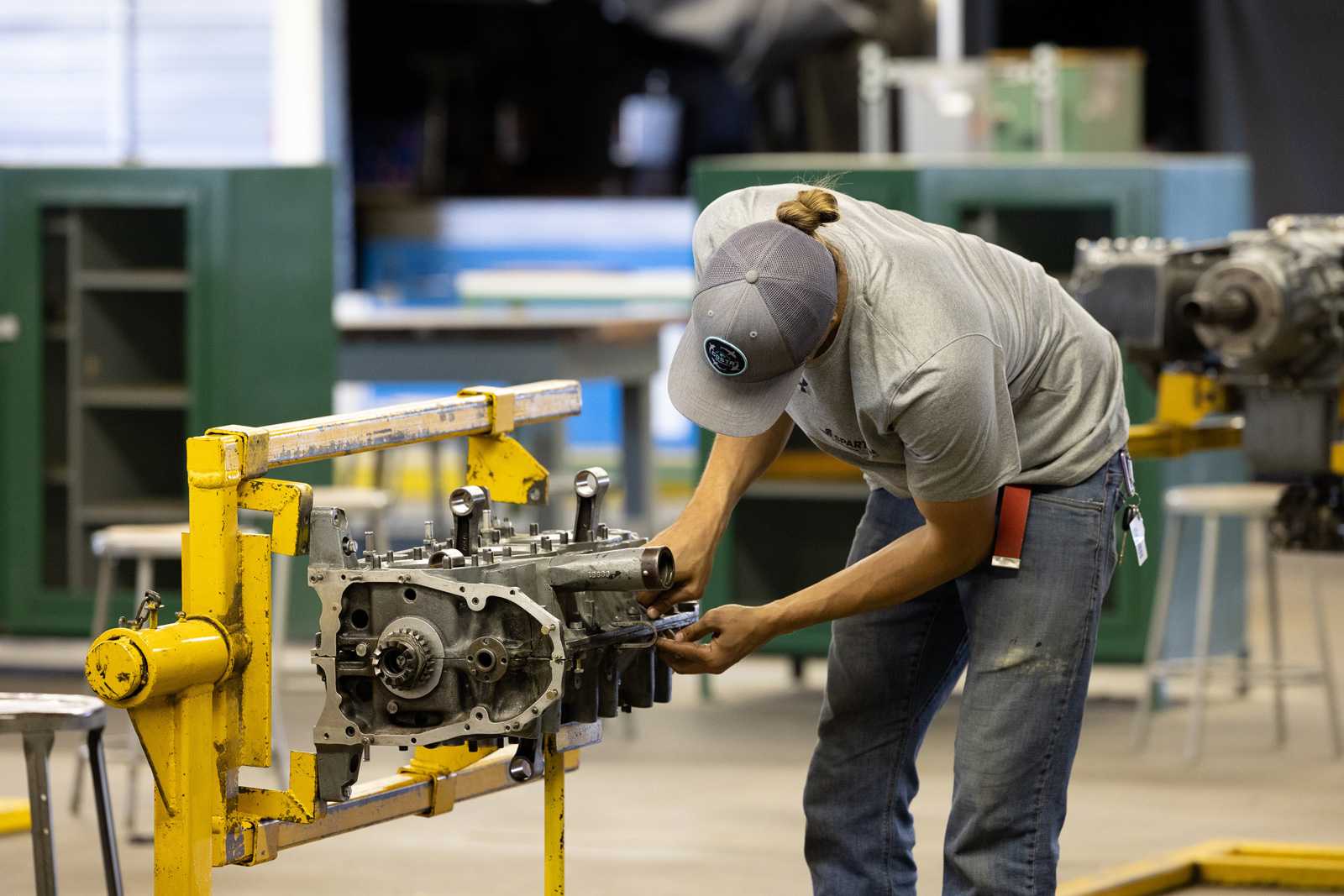

Maybe it has been a few years since you've been in school, and you are looking for ways to increase your skills and knowledge. Maybe you are close to graduating from high school, and you need to figure out what you are doing next. When you are thinking about where you'd like to go with your training and your education, it's best to explore all your options. While many people only think about post-secondary education in terms of four-year schools, trade school is a valid and exciting option for many people.
A trade school, which you may also see described as a vocation-focused school, offers training in specific trades. At a trade school in Denver, you may get the chance to work on the training needed for technicians, hairdressing, truck driving, paralegal roles, or many roles in the aeronautical or aviation space. Some programs end with certification exams after just under a year — or, as we like to say, a few months. Others go on longer and can lead to degrees in a particular field of study.
The biggest difference between a trade school and a liberal arts institution is that the training is tightly focused. When you study for a four-year degree, you'll get training in your specialized area, but you'll also have to cover a lot of other topics. For instance, someone who is going to school for a degree in journalism will still find themselves in classes for math, literature, history, and science. Often, years of effort are invested in areas that are designed to make a more well-rounded student instead of ensuring that they leave with a certain mix of skills.
With a trade school, every class, outside of general education courses, is focused on increasing your knowledge and understanding of your focused area of study. If you are eager to learn about a specific trade, and don't want to spend years on subjects outside your area of interest, a trade school could be exactly what you are looking for.
Trade schools also tend to be far more hands on. For instance, in a program like Spartan College's Aviation Electronics Technology (Avionics) and Aviation Maintenance Technology program, you'll take classes focused on subjects that include Metallic Structures, Turbine Engine Fundamentals, and Aviation Maintenance Practices. Classes are divided between lecture and lab portions so that students can apply what they learn.
People who enroll in trade schools typically emerge very prepared to tackle their certification or rating exams in their area of study. This training (and subsequent certification) is typically designed to give them the knowledge they need to explore an area more thoroughly after school. However, certifications may not be the only option available at a trade school. Many also offer Associate of Applied Science degrees or Bachelor of Science degrees.
Depending on what you are looking to get out of a program, a trade school can offer a wealth of advantages. First, you have the advantage of diving straight into your desired field of study. In a four-year liberal arts institution, you often spend your first two years focusing on what is known as general education. You are often a junior (AKA a third-year college student) in school before you start learning the nuts and bolts of the subject that drew you in the first place.
This direct approach often means less time spent in school pursuing credentials. Instead of looking at four years before you finish, you could be looking at just over a year for trade-focused training and certification exams — or less than two years for an Associate of Applied Science degree.
Because a trade school is a shorter program, you may find that it is more cost-effective. You are not paying for as many semesters of classes, which could possibly mean lower costs in the end.
Trade schools are great for people who value hands-on experience over theoretical knowledge. Are you the type of person who wants to get past the "what" and learn more about the "how"? A trade school is an environment where your time will be spent learning in a classroom and the lab how to do something as opposed to learning the entire history of the subject instead.
Finally, a trade school can offer advantages in the form of networking opportunities. In a trades program, you are around other people with the same future interests you have. You are interested in the same field of study and may wish to do the same sorts of things after you are done with school. This means that you already have a network in place that can enhance your learning, keep you motivated, and help you figure out what is next when you finish your program.
There is no one profile of a student who is a good trade school fit. Some people may choose a trade school because they are looking for highly focused training in a specific area. This sort of attention to detail can make someone a good trade school student.
Another characteristic that can make someone a good trade school fit is an interest in hands-on education. If you are the type of person who likes acquiring physical skills, trade school can be an appealing option.

Compare several programs to see which one has the sort of classes and facilities you are looking for in your desired training. Visit in-person and ask for a tour. This will give you a chance to see the workshops, labs, and classrooms. Ask about the equipment available to students. Quality schools will invest in training aids that are relevant to what students are there to learn. At Spartan College of Aeronautics and Technology’s campus near Denver, for instance, there are three Cessna 172s, a Cessna 152, a Lear Jet 24, Dassault Falcon 20, and a Beechcraft C-35 Bonanza available to provide students with the best hands-on learning opportunities where they can ask questions and fix components under instructor supervision. The chance to work directly with, on, and in airplanes there can mean a better learning environment and better educational results.
You should also make sure that the location and the campus are convenient and workable for you. Are the labs and shops well-organized with plenty of tools available? Is there enough parking? How comfortable are the classrooms? A well-designed campus is a pleasure to visit. You'll be happier in your program, and more excited about the chance to learn every day.
Learn about the instructors and the size of the classes. You should ask about instructors' qualifications and how much experience they have. It is also great to find out how many other people will be in your classroom. The ideal classroom has enough students to allow you to learn from one another, but not so many that you can't get one-on-one attention when you need it.
If possible, stop by our campus for a tour to meet instructors and see what’s really going on day-to-day — or watch alumni testimonials to see what they think about the program. Someone who has gone through the program can tell you a lot about their experience in the program.
Consider what the area is like for entertainment outside of school hours. No one can get by just going to school and going home or to work — students need to see movies, take in art, go for a hike, and laugh at a comedy show. Look at the environment around a school to see if it provides something to do in your downtime. If you enjoy hiking and outdoor activities, for instance, the area around Denver and Colorado Springs has a lot of options to choose from.
You should also look at what kinds of student services are available. These can help you decide which school offers the best resources for you both during study and after graduation.
Choosing a properly accredited institution is vital. Institutions can only get accreditation if they meet or exceed the minimum quality standards set by their accrediting body. All accredited schools should be in good standing with their accrediting body. You'll be more secure that the training you get will be valuable to you. Additionally, you will know that the program and curriculum will provide correct and vital information to you.
When investigating a program, costs are, of course, an important consideration. Do you plan to pay for schooling with savings? If this is the route you plan, make sure you have enough to cover your studies from beginning to end.
If you intend to work while you are in school, be realistic about how much you can take on. The pace of your classes will sometimes be challenging, and you need to be sure that you have enough energy to complete all your classes and cover your working hours.
Many schools will also offer financial aid options for those who qualify and need additional funds to cover their costs. These can include scholarships, grants, and loans. Be sure to thoroughly investigate each option to learn what it will cover and what you are eligible for.
Don't be afraid to look for scholarships outside the school, as well. Many people think that scholarships are only for liberal arts programs, but that could not be further from the case. Investigate local, regional, and national public and private scholarships to find ones to apply to. Don't write off small scholarships, either. Every little bit toward your education counts.
Education and training are huge, highly personal choices. No one person can say for anyone else what the best path is for their future. But, if you have the discipline and drive to work through a challenging and specialized program, trade school could be the path for you. Check out Spartan College’s Aviation Maintenance Technology and Aviation Electronics Technology (Avionics) programs on our Broomfield campus. Examine the programs available in your area to learn more about how this path can inform your future.
Spartan College offers programs geared toward career-oriented training in the aviation industry. Click here to learn more about our programs and consumer information.
Affiliate Partner Program | Jobs at Spartan | Privacy Policy | Opt-out Policy | Privacy Notice - California Residents| Notice of Non-Discrimination | Website Accessibility Help | Transparency in Coverage Act
© 2024 SPARTAN COLLEGE OF AERONAUTICS AND TECHNOLOGY. ALL RIGHTS RESERVED.